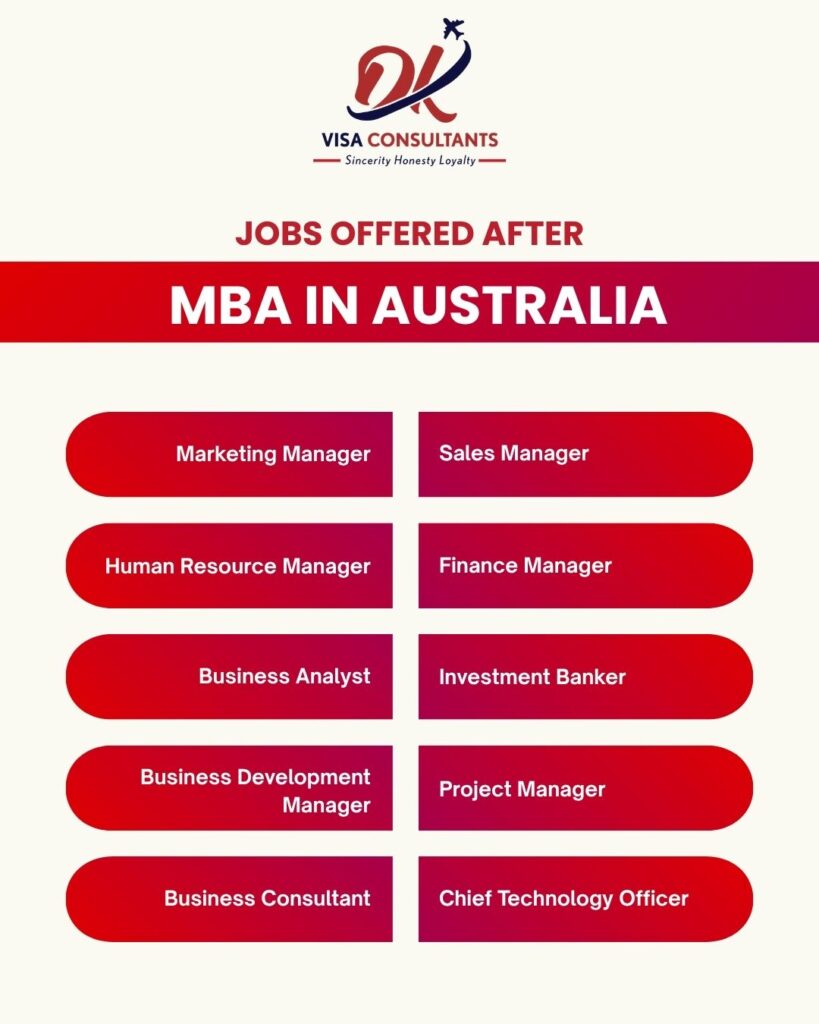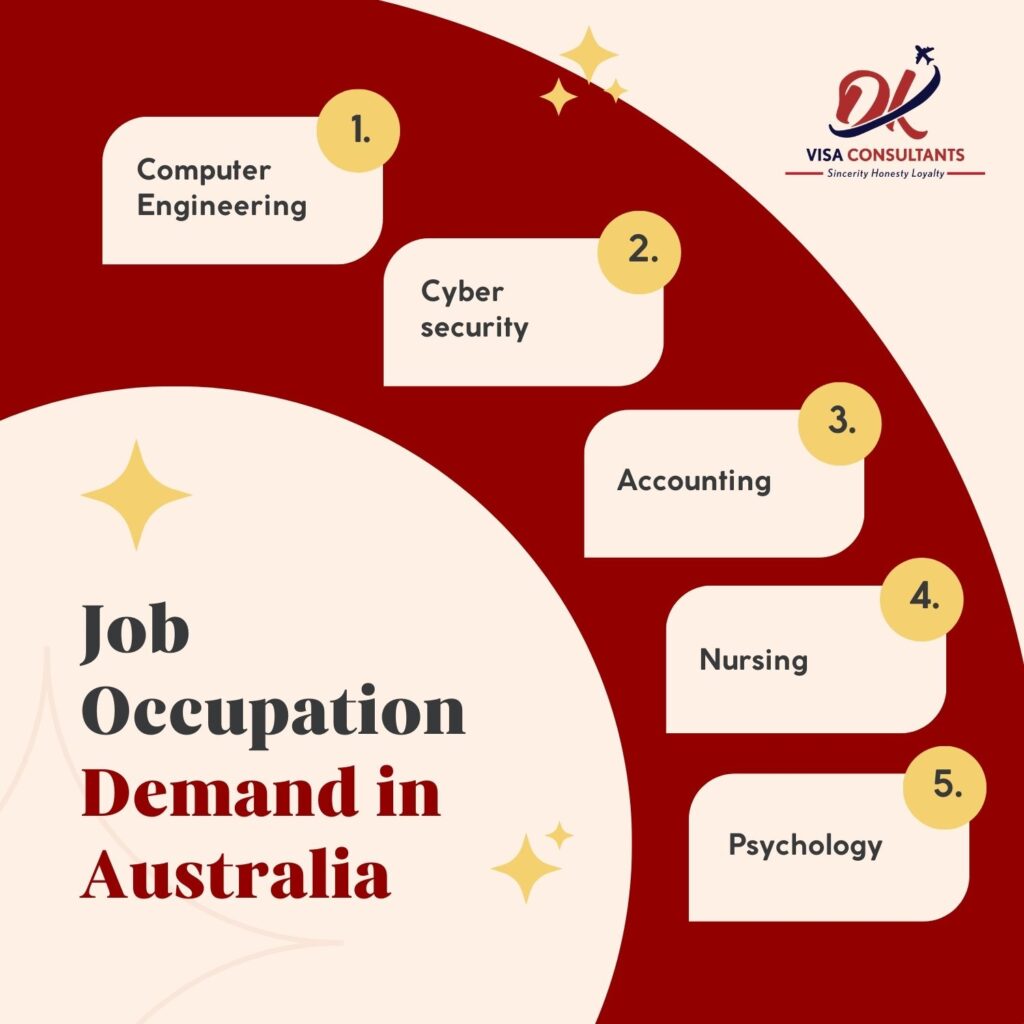It seems thrilling to move to Australia, doesn’t it? Well, that offers a great route to permanent residence.
With approximately 5,67,000 international students from all around the world, it is a well-liked choice for international students. It has a robust economy, a diversified culture, and a top-notch educational system. After graduation, students able to relocate permanently to Australia if they select the appropriate course and fulfill the prerequisites.
International students will have more options to gain permanent residency as the government of Australia intends to increase the number of annual immigrants from 35,000 to 195,000.
Read the blog, to know about the top PR eligible courses in Australia along with the estimated salaries.
Why to Study in Australia?
The following is a list of benefits for selecting Australia:
- It is currently the third most popular country in the English-speaking world for international students, behind the United States and the United Kingdom. It’s a popular location for international students because of its outstanding education, kind locals, and unique culture.
- Graduates from Australian universities are in high demand because of the excellent international reputation educational system. This system is strictly regulated by the government to preserve the country’s reputation for high-quality education.
- The standard of living in Australia is among the highest in the world. It has far cheaper living and schooling costs. To assist with living expenses, international students might work part-time while they are enrolled in classes. Furthermore, financial aid in the form of scholarships is offered to assist overseas students in financing their education.
PR courses in Australia:
After graduating, most international students plan to stay permanently because it’s a safe country with great prospects for career advancement.
Below is the list of courses:
| Courses |
| Aeronautical Engineering |
| Chemical Engineering |
| Agricultural Engineering |
| Civil Engineering |
| Electrical Engineering |
| Software Engineering |
| Mining Engineering |
| Software Tester |
| System Analyst |
| Accountant |
| Teacher |
| Midwifery |
| Nursing |
| Finance Manager |
| General Mechanic |
| Hotel Management |
| Construction project Manager |
| Social Work |
| Hospitality Management |
| Bakery & Chef Courses |
| Building Inspector |
| Dental Science |
Best Field in Australia for PR:
The top PR career fields are shown below:
Most students who are interested in studying abroad select courses that will enable them to obtain employment and obtain permanent residency in the nations where they study.

- Engineering
- Accounting
- Nursing & Midwifery
- Education & Training
- Computer & Information technology
- Engineering:
It provides a range of engineering programs to applicants from abroad. The country experiences an acute lack of engineers each year because of significant hiring in the manufacturing, power, energy, construction, and other sectors. Obtaining an Australian engineering degree opens doors for most of the students.
A yearly salary of INR 35,01,000 is projected.
- Accounting:
International students frequently choose accounting as their field of study. It’s one of the sectors with the most room for growth and one that has spread quickly across the country.
The anticipated yearly salary is INR 39,78,400.
- Computer & Information Technology:
One of the greatest subjects for PR students to study is computer science, which provides both promising jobs in the corporate sector and a variety of possibilities for studying at prestigious universities. Never forget that there will always be a need for computer and IT experts. Therefore, candidates have a great chance of finding employment if they finished their schooling in the Australian territory.
Estimated Salary per Year: INR 47,73,800
- Nursing & Midwifery:
The nation is in the top ten globally in the healthcare sector. Among the students studying here, nursing is one of the most popular permanent residency programs. The huge international demand for these courses is not unique to Australia. For nurses and other healthcare professionals, it offers rewarding career opportunities as well as the opportunity to get permanent residency.
Expected Salary per Year: INR 32,87,300
- Education & teaching:
Teachers that are qualified and talented are in great demand in the field of education. Students often find that applying to the best PR courses is easier after completing courses in this field.
Estimated yearly Salary: INR 42,57,600
Best Universities in Australia:
Below is the list of the universities offers engineering, nursing, midwifery, accounting, and education courses:
| Universities |
| University of Canberra |
| Deakin University |
| University of Wollongong |
| Edith Cowan University |
| University of Adelaide |
| Monash University |
| University of technology Sydney |
| La Trobe University |
| University of Sydney |
| Griffith University |
| University of New South Wales |
| RMIT University |
| University of Melbourne |
| Australian National University |
| University of Queensland |
Benefits for courses in Australia:
If candidate have a permanent residence visa, they can travel to Australia whenever they like. However, keep in mind that the validity of first PR visa is limited to five years. However, they can request to have this visa extended before it expires. If students leave the nation and come back to Australia after permanent residency has ended, they will need to get a five-year Resident Return Visa (RRV). Here are some additional possible advantages:
- As soon as candidate get PR status, they are unrestricted in ability to work and choose any profession like. Certain professions, such as those in the government or the military, constitute an exception, though. For these two posts, applications are only open to Australian nationals.
- Candidate credit score will rise rapidly as an permanent resident, which will make it easier to get approved for credit cards, personal loans, auto loans, and other loans.
- Australian citizens and permanent residents are qualified for the Higher Education Loans Program, which offers financial aid to students, as per the Higher Education Support Act of 2003 (HELP). This will be helpful if they ever run into financial difficulties while a student.
- After two years of becoming a permanent resident, apply for social welfare support linked to unemployment, illness, and education from the Social Security Department, also known as Centrelink. provide their family with these aids.
Finally, choosing a country for your further studies depends on the applicant’s decision and career goals. Study in Australia offers students a diverse culture and better opportunities for the future. Planning to study abroad, visit DK Visa Consultant and talk with our experts team for proper guidance.
FAQ
Q1. Which courses in Australia will be eligible for PR ?
Ans: Candidate can obtain permanent residency in Australia through studies in engineering, computer networking, midwifery, education, medical studies, and vocational certification programs. Additional trade courses include those in electrical engineering, automotive, painting, hospitality, building, construction, etc.
Q2. What is the easiest way to become a permanent resident of Australia?
Ans: Students may follow certain steps to get PR in Australia. The easiest way is to sign up for any course that qualifies for the desired result. The nation needs skilled immigrants with solid educational credentials and promising career paths to support its economy. The Australia-based Skilled Migration program is one option when applying for a PR visa; it has the most opportunities.
Q3. Which field in Australia is ideal for PR?
Ans: Candidate need to work in a specialist field to earn PR. This pertains to certain professions such as medical professionals, engineers, dentists, social workers, mechanical engineers, chefs, psychiatrists, and so on.
Q4. Who in Australia can get PR with ease?
Ans: For a profession that is in high demand and for which there are few qualified candidates, it is usually easier to receive an invitation. Applicants for skilled visas may be awarded points based on the following criteria: Age range: 18 to 45 years old competence with the English language.
Q5. What is the required number of points for Australian PR?
Ans: candidate need to have at least 65 points to be eligible for PR in Australia. Nonetheless, the more points have, the better their chances are of qualifying.







